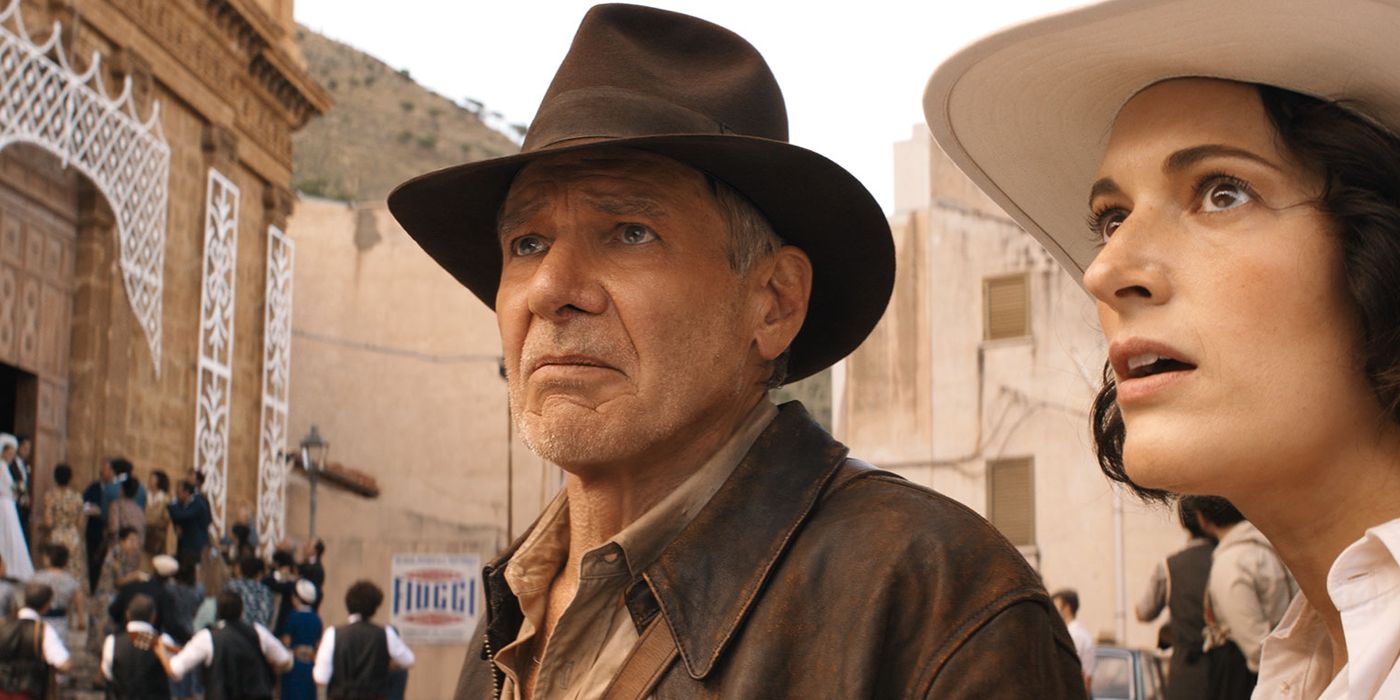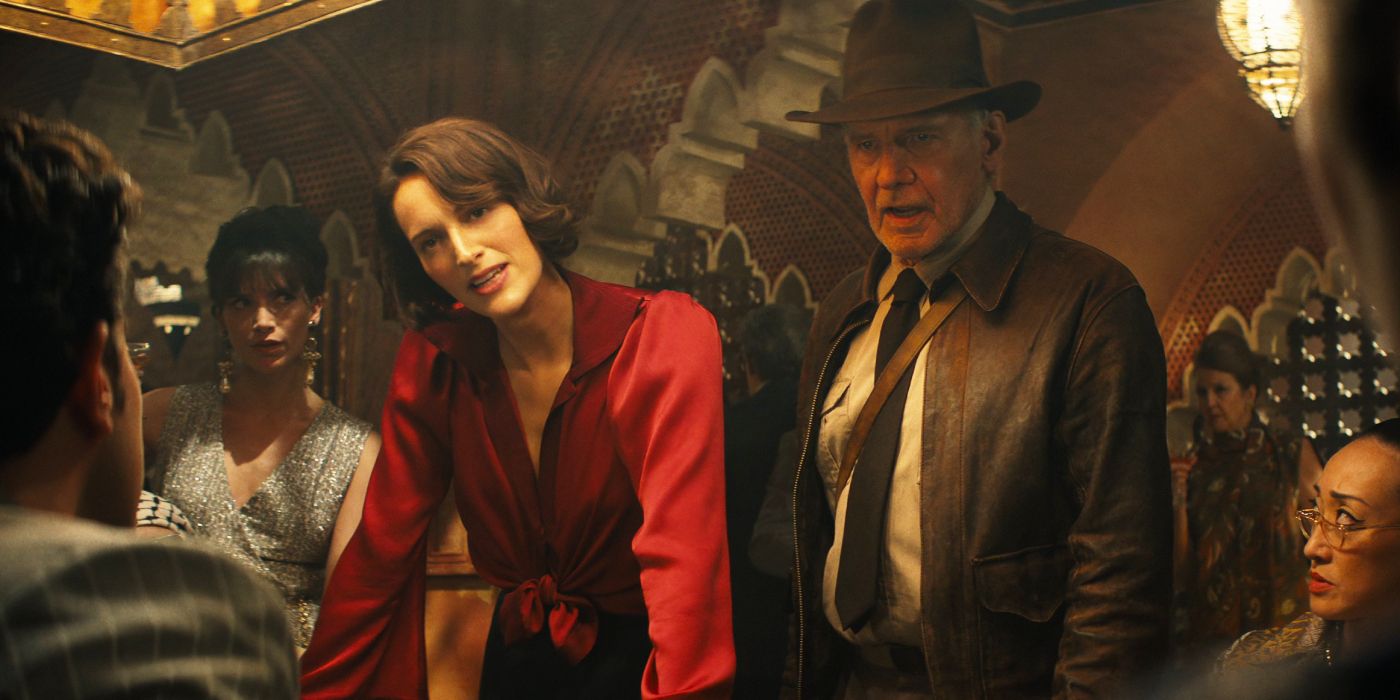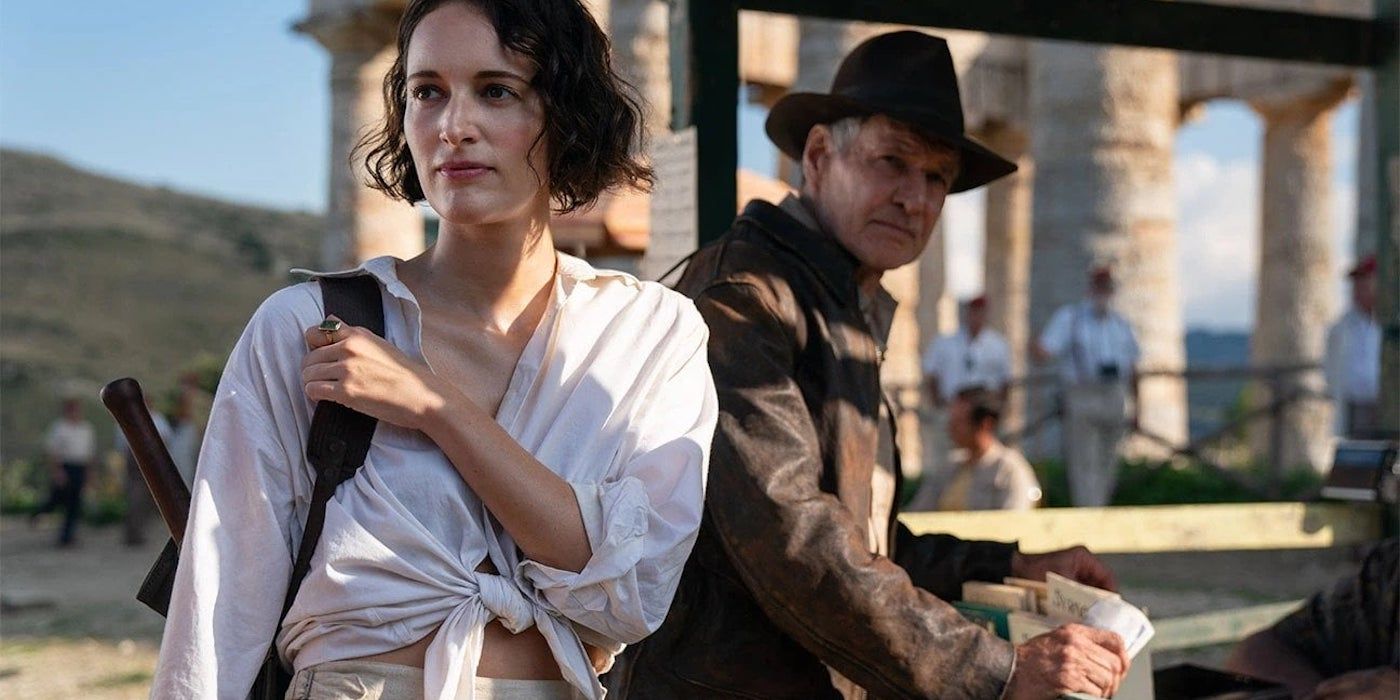The following contains spoilers for Indiana Jones and the Dial of Destiny, in theaters now.
After middling reviews from its debut at the Cannes Film Festival, the conversation around the fifth Indiana Jones adventure is beginning to change. Critics and, more importantly, audiences see more of the movie's charm than its flaws. It helps that Indiana Jones and the Dial of Destiny is Harrison Ford's best performance in the role. Dr. Henry Jones, Jr. is more "human" than he's ever been.
Age may be a factor in this subtle shift in the character, but it's aided by James Mangold. He's the first director other than Steven Spielberg to bring the character to life. The Logan director employs his own style. Sure, there's references and an homage or two, but The Dial of Destiny brings a new perspective to its visual vocabulary. Mangold's lens still falls lovingly on Indy. Only rather than inspired by film serials of old, the movie is shot by an Indiana Jones fan. In The Kingdom of the Crystal Skull, Indy is an aging adventurer. In The Dial of Destiny, he's well and truly washed up. The marriage that ended the last film is over. Mutt Williams, played by Shia LaBeouf in Indiana Jones 4, died serving in Vietnam. In the classroom, he's still seeing students' eyelids. Only now they are just sleeping instead of sending "Love You" messages. This allows Harrison Ford to show audiences an Indiana Jones they've never seen before.
Harrison Ford Evolved His Indiana Jones Performance In Impressive Ways
Never before have a character and an actor been so perfectly aligned as Harrison Ford and Indiana Jones. Ford delivers an authentic and unmatched performance in each film, even The Kingdom of the Crystal Skull. The character thrives on a mixture of raw confidence, dumb luck and an unwillingness to accept defeat. Everything from Nazis to interdimensional aliens couldn't stop him, but even Indiana Jones fell victim to time. He's not running from his troubles, nor falling back into old patterns like Han Solo in Star Wars: The Force Awakens. Indy just sits down in his recliner and letting age and despair bowl him over.
The first three films are a poor comparison for The Dial of Destiny, because Indiana Jones is in his prime. While his age is left vague, The Kingdom of the Crystal Skull introduces an elder Indy who is only just realizing the encroachment of time. Still, he's every bit the hero fans remember. In the fifth installment, Indy is almost unrecognizable. Like Luke Skywalker in The Last Jedi, it can be difficult for audiences to accept this kind of character change. However, these storytelling decisions just make them more human. Ford brilliantly imbues his broken Indy with many of the qualities fans know about the character with an added layer of pathos.
When Phoebe Waller-Bridge's Helena and the villains show up, Indy acts like himself. He still really hates Nazis. He still makes it up as he goes along. And, most importantly, he's still willing to risk his life for more than just "fortune and glory." Yet, Harrison Ford shows audiences Indy at his most vulnerable. He's not just more emotional, he's a character with true regrets. Though, when he's ready to spend his last moments looking at history unfold, audiences understand why Helena stops him. Despite all her statements to the contrary, Helena knows everybody needs Indiana Jones.
The Dial of Destiny's Most Heartbreaking Moment Is Its Quietest Scene
The pacing of Indiana Jones 5 is intense, even more so than previous installments. Indy almost always starts out his adventures playing catch-up, but by the middle of the story he gets a step ahead. In The Dial of Destiny this moment comes when Antonio Banderas's Renaldo, Helena and the rest of the crew find the wrecked ship containing the other half of the titular dial. The characters, like most sci-fi nerds, daydream about what they would do with time travel. Indy says he'd go back in time and stop his son from enlisting in the Army. Ford plays it just like a man of Indy's generation would. He fights back emotion as he talks about the toll Mutt's death took on his life. Walking away instead of revealing himself further.
The Dial of Destiny is the second movie in which Indy is also a war veteran. Even though he's at his lowest, emotionally speaking, he still can't suffer his old enemy. In the war, Indy and Basil were meant to stop the massive art and antiquities theft by the Nazis. In the movie's present, it's less about history or the artifacts and more about not letting the old enemy get a win. This comes even before he learns the space time continuum is at stake. Just stopping Mads Mikkelsen's Dr. Voller from getting what he wants is enough to bring the real Indy out of hiding. The Kingdom of the Crystal Skull also revealed Indy was a spy for the US. He likely already knew about Operation Paperclip. Just another reason he resented all the fuss about the Moon landing.
Harrison Ford delivered an excellent final outing as his most iconic character. (Sorry, Han Solo.) He shows just enough bits of the Indy fans remember without undoing Indy's evolution, for better or worse. The adventure with Helena and the return of Karen Allen's Marion are kept understated but strongly suggest a happy ending. Indy has not solved all his problems. But these movies never cared much for denouement anyway. Like every great Indiana Jones film, The Dial of Destiny ends with some laughs and a hint of hope.
Indiana Jones and the Dial of Destiny is currently in theaters.



